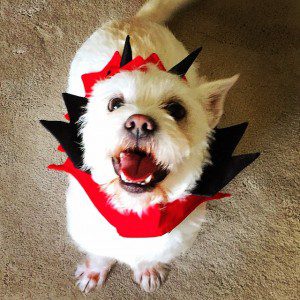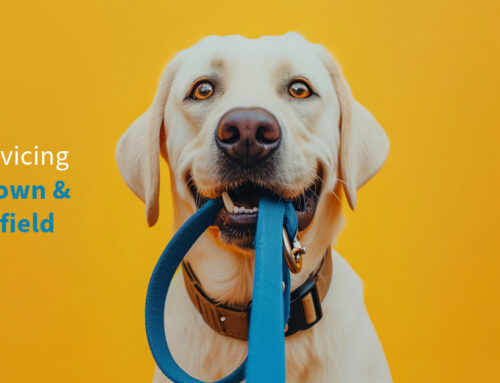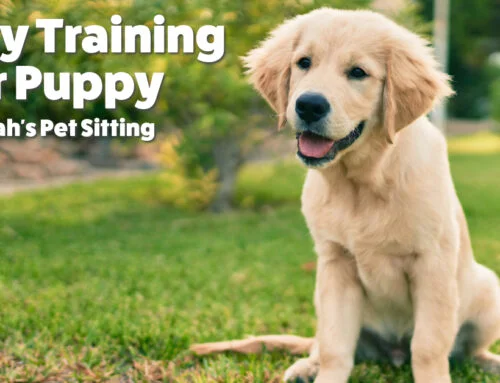Why Does My Dog Bark So Much?
A dog’s barking is one of the few ways they have to communicate, and it’s one of the things that makes sense to us as humans, so dogs quickly learn that barking is good communication. Below I’ve listed the most common reasons causing your dog to bark.
Excitement
Many dogs bark when they get over excited. It’s very much as if they can’t quite hold it in anymore. When a dog gets so excited he just can’t stand himself, about the only thing he can do is bark. When you come home, or company comes over and your dog is zooming about the house barking his head off, he’s probably overexcited and needs to calm down before you can expect him to listen. You can read more about excitement barking here.
Frustration/Boredom
Dogs that are kept confined by fences, walls, crates, kennels, invisible fences, or chains without appropriate outlets for their energy, can begin barking out of boredom and frustration. They will often bark at other dogs or people or small animals because they are not able to engage in more appropriate behaviors such as greeting or playing. Please also check out our Great Place to Hike and Swim with your Dog page for more fun ways to have fun with your dog.
Learned Behavior
Dogs are very smart creatures that learn very quickly what works and what doesn’t. If every time a dog barks, he was to receive a biscuit, he would very quickly start barking all the time. The same is true of dogs that bark to be let in or let out, or bark for their dinner. Sometimes this is a good thing, but this can become annoying or lead to more problem barking. You can read more here to begin correcting this behavior.
Separation Anxiety
One very common symptom of separation anxiety is constant barking when the owners are away. These dogs bark because they are so freaked out by being alone, there is nothing else they can think to do. Barking due to separation anxiety can only be resolved when the separation anxiety is treated. Separation anxiety is a very serious problem and you should always seek help to resolve it.
Reuniting the Pack
Dogs vocalize to call pack members back together. Most commonly dogs will whine, or cry, but when that doesn’t work, they may bark. This is most commonly seen in herding dogs, trying to keep their flock together.
Play
Some dogs bark when they are playing. They bark because they are excited or to try to control other dogs’ play styles. At the dog park they are most often called the ‘fun police’ because they bark at and try to separate dogs that are having too much fun.
Territorial Aggression
Some dogs bark to drive intruders away from what they consider theirs. A dog can consider any size of property to be his, from a patch of carpet in the living room, to the entire world. A bark on it’s own is not a form of aggression, but it can often feel like it is in territorial disputes. Territorial aggression can be a very serious problem and you should always seek help before trying anything on your own.
Fear
Many dogs bark because they are afraid and feel cornered. These dogs move quickly and sharply, and often have their tail tucked between their legs. If you give them space they will often stop barking and calm down. The best thing to do with a fear barker is to let them come to you. Forcing them to interact when they are not ready, can lead to a bite. Always seek help from a professional when dealing with fear problems or other situations where a dog may bite.
Sarah’s Pet Sitting is proud to offer in home dog training services in Cheshire, Southington, Wallingford, Meriden and Hamden, with Certified Professional Dog Trainer Laura, please click here for more information or to schedule your consultation. Other towns please inquire.
Laura Azevedo CPDT-KA
Sarah’s Pet Sitting’s Professional Pet Sitter and Certified Dog Trainer









